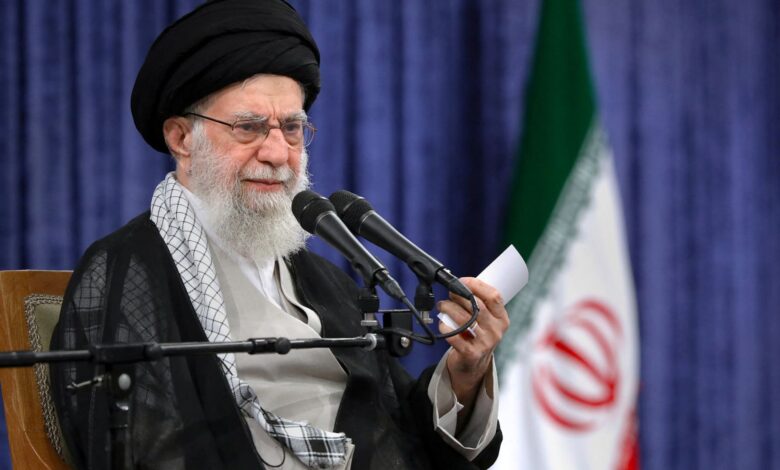Oil prices surge after Israel launches airstrikes against Iran

Iran’s Supreme Leader Ayatollah Ali Khamenei speaks during a meeting in Tehran, Iran, May 20, 2025. Office of the Iranian Supreme Leader.
Office Of The Iranian Supreme Le | Via Reuters
Oil prices surged by $5 per barrel on Friday after Israel launched airstrikes against Iran, sparking concerns among investors about potential disruptions to oil supplies in the Middle East. The attack, carried out without U.S. support, led to the biggest increase in crude prices since Russia’s invasion of Ukraine in March 2022.
Following Israel’s action, U.S. crude oil gained $4.94, or 7.26%, closing at $72.98 per barrel, while the global benchmark Brent rose by $4.87, or 7.02%, settling at $74.23 per barrel.
In response to Israel’s attack, Iran fired missiles at Israel, causing crude prices to rise even further in after-hours trading. The conflict escalated as Israel targeted Iran’s nuclear and ballistic missile facilities, resulting in casualties among senior Iranian military officials.
Despite the military operation, Israeli Prime Minister Benjamin Netanyahu emphasized that the attack was aimed at neutralizing Iran’s threat and did not disrupt major oil infrastructure.
U.S. Secretary of State Marco Rubio clarified that the U.S. was not involved in the strikes against Iran and emphasized the protection of American forces in the region. President Donald Trump also commented on the situation, blaming Iran for failing to reach a nuclear deal within the specified timeframe.
Oil prices year-to-date
What next for oil prices?
Concerns loom over oil supply from Iran and other regional players that could be drawn into the conflict. Iranian production figures indicate a potential risk to global oil markets, with the International Energy Agency monitoring the situation closely.
Despite the heightened tensions, there has been no direct targeting of Iranian oil facilities, allowing Tehran to continue its oil exports. The Strait of Hormuz, a critical passageway for oil transportation, remains open, although the situation is being closely monitored for any disruptions.
Experts suggest that while the conflict poses challenges, it is not expected to have a severe impact on oil supplies compared to previous geopolitical events such as Russia’s invasion of Ukraine.
Iranian oil facilities not targeted
The escalating tensions in the Middle East have raised concerns about potential disruptions to oil supplies, particularly through key chokepoints like the Strait of Hormuz. Despite the significant military actions taken, Iranian oil production and export facilities have not been directly targeted.
Analysts emphasize that any attempt by Iran to block the Strait of Hormuz would lead to retaliation and economic pressure, especially from major oil importers like China. While the situation remains fluid, the immediate impact on oil prices is being closely monitored.





